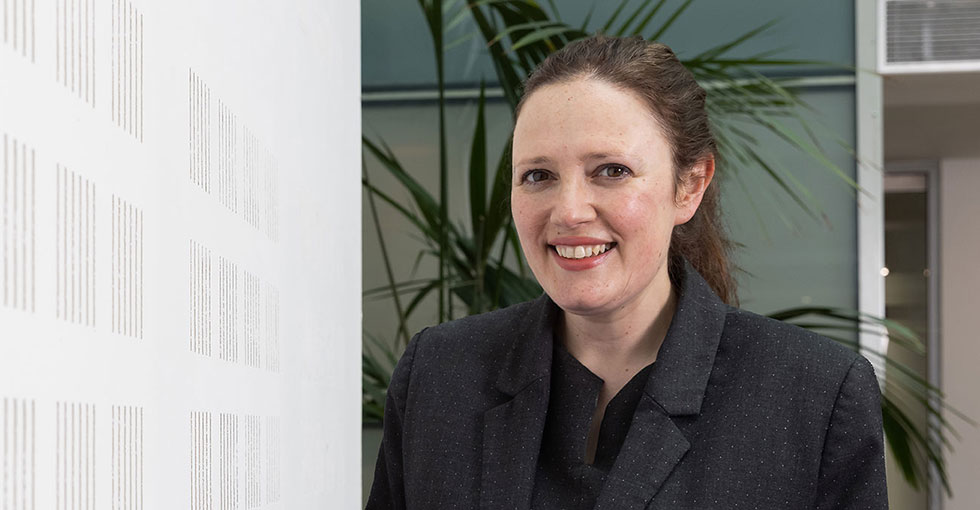To mark International Women’s Day, we’re delighted to share this interview with Jennifer Josephs, who will be appointed King’s Counsel on March 24th.
From facing early discouragement to becoming one of the leading criminal barristers in the country, Jennifer’s journey is one of determination and resilience. Our Marketing Manager, Guy Dunwoody, sat down with her to discuss her path to success, the challenges she’s overcome, and her advice for young women considering a career at the criminal Bar.
What first sparked your interest in criminal law?
I wanted to be a barrister from quite an early age, certainly by the time I was going into sixth form. In fact, some of the teachers at my school had certain old-fashioned views and didn’t think I would be good enough to study law, let alone have a career at the Bar. They tried to put me off applying, telling me I wouldn’t get into university. Although it was hard to hear, I didn’t let them put me off.
Did you have any female role models when you were starting out?
A few. My mum, who worked as a midwife so nothing to do with the law; she had (and has) a really amazing work ethic and showed me how important it is to show kindness and compassion, regardless of someone’s background or difficulty. The one teacher who told me to follow my ambitions and not listen to the people who told me I wasn’t good enough. And the female members of chambers who encouraged and supported me when I got pupillage and then joined chambers. There are many more of us now and I hope that I can be a role model for those women starting their career at the Bar.
I was told recently by a young member of the bar that I was an inspiration and role model to the younger women. To be honest it came as a surprise to me as I had never thought of myself in that way, but I was really happy to hear this, and I hope that I will continue to be.
How did you navigate your first few years at the criminal Bar?
Initially I did a mix of civil and crime, but after a few years I realised that crime was where I wanted to be. It was a scary decision but absolutely the right one for me, and I have never regretted it. When I started, there were very few female barristers who practised in crime in my chambers, so that was a little daunting, but I never felt it held me back.
Criminal law can be emotionally taxing, how did you develop resilience early in your career?
Camaraderie and a sense of humour.
What’s been your most memorable case and why?
Too many to list! Every case has its own issues and difficulties, from a youth court trial about the school playground theft of Pokémon cards through to gangland murder trials. Every case is important. One of the amazing things about this job is the unpredictability – you never know what will happen next. Having said that, I will never forget being involved in the trial about the Birmingham riots where gangs set fire to a pub and fired guns at the police.
Do you feel that being a woman has influenced in any way your approach to advocacy in the courtroom?
Perhaps, but that is probably down to my own style. I think that everyone is individual, and what works for one doesn’t work for all. For me, I try to remain friendly and approachable, down to earth, it’s not always possible but it definitely helps.
Have you felt that being a female advocate has held you back in any way?
I’ve never really felt that being a female advocate has held me back other than with a few clients who didn’t like the idea of a woman representing them. Perhaps I’ve been lucky, but I’ve worked in all areas of crime, including homicide, drug trafficking, and fraud (despite only having GCSE level maths!). People often say that there is a risk that as a female you can get sidelined into particular areas of crime but it’s not something I have experienced. Women criminal barristers are still a minority, and I think that we do still feel at times there is an element of having to prove yourself, but it is getting better. I recently worked in a case which had a completely female team – all the police officers, all CPS staff, myself and my junior. It was great!
What strategies helped you build your practice and reputation in criminal law?
Have patience, always offer support and help and keep a sense of humour. Put the work in both in court and with clients/witnesses, regardless of which side you are on. Treat everyone with respect. You can be nice without being a pushover. Don’t be afraid to ask for help.
Only a year after I started at the Bar, I had to take time off for serious health problems, and I have had to deal with them throughout my career. I have often worried that it would hold me back, or that people wouldn’t take me seriously, but that hasn’t been the case. And actually, I think my efforts to get through these difficult times gave me a stronger sense of determination and ambition.
How do you manage the unpredictable hours of criminal practice with your personal life?
I’m afraid you just have to get used to it. As do your family and friends. I try to avoid organising too much in the week. Wellbeing has become much more of a recognised issue, and it’s important to ensure you get a break and sleep! But the work needs to be done – because ultimately, people, sometimes very vulnerable people, are depending on you.
Has your approach to work-life balance evolved throughout your career?
As I’ve got older, I’ve appreciated the need to have time to decompress and relax. Taking breaks and having holidays is really important. I still have to learn to switch off emails though.
What self-care practices have been essential to sustaining your career?
Surrounding myself with friends who understand the pressures of the job.
What motivated you to apply for silk, and how did you know the timing was right?
I was being encouraged by lots of people who saw that this was the right path for me long before I did – it took me a while to listen and accept the advice! I decided that now was the right time for me to apply, mainly because the work I was doing was of a high calibre, including prosecuting a murder as the leader, and regularly being against silks.
How did you prepare for the KC application process?
The form is not easy to fill in, and it feels really alien saying positive things about yourself. As for the interview, I didn’t really have time to prepare as I only had 10 days’ notice! Perhaps that was for the best.
What was your reaction when you learned you’d been appointed silk?
Complete shock. I had to get someone else to read the email to confirm it was true! And since then, just absolute joy and pride. The reactions of everyone else have been wonderful too, people have been so supportive and complimentary.
What single piece of advice would you give to a young woman considering a career at the criminal Bar today?
If you really want to do it, you’ve got the grades, and you’re willing to put the work in, you should go for it. Don’t expect to earn a fortune and accept that you will have to work extremely hard, including some evenings and most weekends. But despite the frustrations, it’s a brilliant world to be a part of, and at least some of the time you will feel you’re actually making a difference to people’s lives.
How do you see the criminal Bar evolving for women over the next decade?
I think we will continue to go from strength to strength. We now have women in senior positions, including the head of the judiciary. And looking at pupillage, the numbers coming through now are pretty much equal men and women. Retention of women at the criminal Bar remains a problem that we must address, especially for those who have young families and hopefully this will continue to improve.
What’s next for you now that you’ve achieved silk?
I think it might be time for a holiday in the sunshine!!










